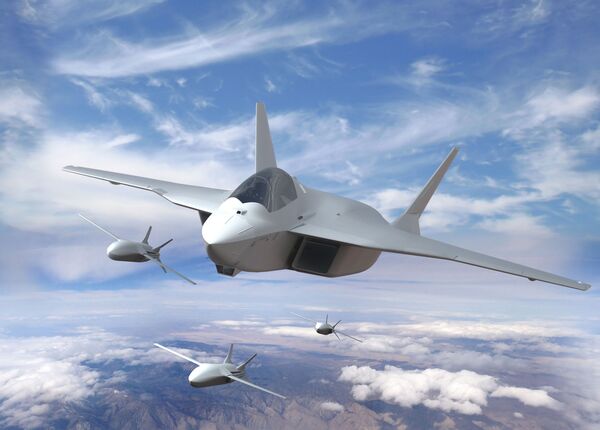
An artist's impression of the New Generation Fighter and Remote Carrier loyal wingmen that sit at the heart of the Next-Generation Weapon System element of the Future Combat Air System. (Airbus)
The national partners heading up the trinational Future Combat Air System (FCAS)/Système de Combat Aérien du Futur (SCAF) have broken the deadlock surrounding the demonstrator phase of the project.
The governments of France, Germany, and Spain issued statements on 18 November heralding the breakthrough in industrial workshare negotiations that had stalled Phase 1B of the project since the beginning of the year, and noting the imminent conclusion of a contract.
In separate statements, the governments noted the imminent conclusion of Phase 1B negotiations related to development of the New Generation Fighter (NGF) element that, along with Remote Carrier (RC) loyal wingmen and Air Combat Cloud (ACC) network, make up the Next-Generation Weapon System (NGWS) element of FCAS/SCAF. The upcoming signing of the industrial agreement will clear the path ahead for the continuation of the project that had been threatened by a workshare dispute between France's Dassault and Germany's Airbus in particular, with Spain's Indra caught in the middle.
While none of the parties provided details of the impasse that had halted the trilateral project, for some months France in general and Dassault CEO Éric Trappier in particular have been making critical comments on the FCAS/SCAF project and the NGF future fighter that underpins it.
Looking to read the full article?
Gain unlimited access to Janes news and more...







